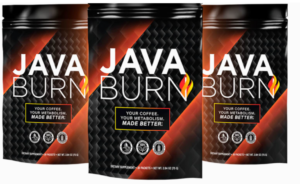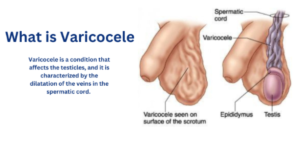Potato skins may be overlooked, but they pack a punch when it comes to nutrition. Loaded with fiber, vitamins, and antioxidants, they offer a wide range of health benefits, from digestive support to better skin health. Potato skins are incredibly nutritious, offering fiber, vitamin C, potassium, and iron. In fact, most of a potato’s fiber and 20% of its vitamin C are concentrated in the skin. Here’s why you might want to make potato skins a regular part of your diet.
Table of Contents
Health Benefits of Potato Skins
1. Enhances Digestive Health
The fiber in potato skins aids digestion, making it easier for your body to absorb nutrients.
2. Supports Heart Health
Potato skins provide potassium, which helps manage blood pressure and supports heart health.
3. Boosts Immune Function
Vitamin C in potato skins bolsters your immune system, helping to ward off illnesses.
4. Improves Skin Health

Antioxidants in potato skins fight free radicals, potentially reducing skin aging signs.
5. Provides Antioxidants
Potato skins contain antioxidants that protect cells from oxidative damage, promoting overall health.
6. Enhances Bone Health
Potato skins contain magnesium and phosphorus, two minerals that work together to build and maintain strong bones. Magnesium is necessary for the conversion of vitamin D into its active form, which is essential for calcium absorption. Phosphorus complements calcium to build bones, making potato skins a good option for those looking to maintain bone density.
7. Supports Nervous System Health
Vitamin B6, found in the skin of potatoes, is crucial for creating neurotransmitters—chemicals that transmit signals in the brain. By including potato skins in your diet, you’re supporting brain health, reducing the risk of mood disorders, and potentially even improving cognitive function.
8. Helps Reduce Inflammation
The antioxidants in potato skins can help reduce inflammation in the body. Inflammation is linked to various chronic diseases, including arthritis, heart disease, and diabetes. Consuming foods rich in antioxidants, like potato skins, may help to combat inflammation naturally.
9. May Aid in Lowering Cholesterol Levels
The soluble fiber in potato skins may contribute to lower cholesterol levels. Soluble fiber binds to cholesterol particles and removes them from the body, which can lower overall cholesterol and improve heart health over time.
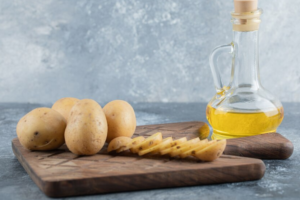
10. Supports Eye Health
Potato skins contain small amounts of carotenoids, which are beneficial for eye health. Carotenoids, like lutein and zeaxanthin, help filter harmful blue light, which can damage the eyes over time, potentially reducing the risk of cataracts and age-related macular degeneration.
In-Depth Look at the Nutritional Value of Potato Skinse
Potato skins contain essential nutrients like iron, magnesium, and phosphorus, which many people may lack in their daily diets. They are also a great source of B vitamins, particularly niacin and B6, which are necessary for brain function, red blood cell formation, and energy metabolism. When you leave the skin on, you’re getting an extra dose of these beneficial nutrients that are often lost when potatoes are peeled.
1. Fiber Content
The fiber content of a medium potato with skin is about 2 grams. Fiber plays a key role in digestive health, helping to regulate bowel movements and reduce constipation. Fiber also promotes healthy gut bacteria, which is linked to better digestion, immunity, and mental well-being.
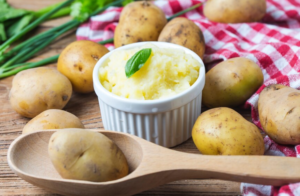
2. Rich in Antioxidants
The skin of a potato contains multiple antioxidants, including phenolic compounds, flavonoids, and carotenoids. These antioxidants combat oxidative stress in the body, which is a primary factor in aging and chronic diseases like cancer, heart disease, and diabetes. Specifically, red and purple potato skins contain anthocyanins, which are known for their potent antioxidant effects and support for cardiovascular health.
Weight Management Benefits
With their fiber content, potato skins can help you feel full longer, potentially aiding in weight management.
- Blood Sugar Control: Fiber in potato skins also helps regulate blood sugar levels, making them a smart choice for those monitoring glucose.
- Energy Boosting Potential: Potato skins are a source of iron, which is essential for energy production and reducing fatigue.
How to Safely Prepare and Enjoy Potato Skins
Potato skins can be safely eaten when prepared correctly. It’s essential to wash potatoes thoroughly to remove any dirt or pesticides. Baking, roasting, or air-frying are ideal cooking methods as they enhance the flavor while preserving nutrients. Here are some tips for preparing potato skins:
- Baked Potato Skins with Herbs and Cheese: After baking, sprinkle with your favorite herbs, a light sprinkle of cheese, and olive oil.
- Potato Skin Chips: Slice thinly, season with salt and pepper, and bake for a crunchy, nutrient-packed snack.
- Loaded Potato Skins: Top with Greek yogurt, diced tomatoes, green onions, and shredded cheese for a healthier version of the popular appetizer.
Potato Skins and Food Sustainability
Using the entire potato, skin included, is also an eco-friendly choice. Food waste is a global issue, and consuming potato skins can help reduce waste by making use of a part of the vegetable that’s often discarded. This practice aligns with sustainable eating principles and helps to minimize environmental impact.
Potato Skins in Traditional and Modern Diets

Historically, potato skins have been used in various cuisines around the world. In many cultures, the entire potato, including the skin, is cherished for its flavor and health benefits. Today, potato skins are making a comeback in health-conscious kitchens, with many recipes now incorporating the whole potato to capture its full nutrient profile.
Addressing Common Misconceptions about Potato Skins
Some people may think potato skins are indigestible or unhealthy due to concerns about potential toxins. However, when potatoes are stored and prepared correctly, these issues are minimal. The nutrient density of potato skins far outweighs these concerns for most people. Additionally, any risk of solanine, a natural toxin, is only present in green or damaged potato skins, which can easily be avoided.
Conclusion
Incorporating potato skins into your diet can support digestion, heart health, immune function, and more. They’re an easy, nutritious, and sustainable food choice. Adding potato skins to your diet is a simple, cost-effective way to boost your nutrient intake. From supporting heart health to aiding in digestion and beyond, potato skins offer numerous health benefits that can support overall wellness. Whether enjoyed in a baked dish, roasted as chips, or added to soups, potato skins can bring flavor, texture, and nutrition to your meals.
Embrace the habit of eating potatoes with their skins on, and you may notice improvements in your digestion, energy levels, and even your skin. Plus, by consuming the whole potato, you’re making a sustainable choice that benefits both your health and the environment.
FAQ’s
Yes, they’re safe when properly washed and cooked.
One or two servings of potato skins per day is generally healthy.
Yes, their fiber content can aid in feeling full.
No, potato skins are low in calories when prepared without added fats.
Most people digest potato skins well, but they may cause gas for some.
In rare cases, green potato skins contain solanine, a natural toxin.
Yes, their potassium content supports heart health.
Potato skins are high in fiber and vitamin C compared to many other skins.
Yes, their antioxidants support skin health.
Baking and roasting are easy, nutritious cooking methods for potato skins.
Yes, while potato skins contain some carbs, they’re high in fiber, which slows carb absorption and may fit into some low-carb diets.
Organic potatoes may have lower pesticide levels, making their skins a good option if you want to avoid pesticide residue.
Yes, some people use potato skins as a natural remedy to reduce dark circles and brighten skin.
No, sprouted or green potato skins can contain higher levels of solanine and should be avoided.
Store potatoes in a cool, dark, and dry place to prevent sprouting and green spots.
No, processed potatoes often have removed skins, reducing their nutrient density.

10 Proven Benefits of Bananas for Health and Well-being
Bananas are known for their natural sweetness, ease of peeling and rich nutrition. This makes them one of the most commonly consumed fruits in the world. Though bananas originated in Southeast Asia, they are now

Disease X: The Next Pandemic?
Emerging infectious diseases pose one of the greatest threats to human health and global stability. One of them, “Disease X” has intrigued scientists and WHO, as it represents the potential for an unknown disease to
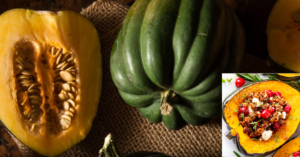
The Remarkable Benefits of Eating Acorn Squash in Winter
Acorn squash has all the qualities that make it special. Winter calls for warmth, comfort, and nutrition, and acorn squash provides all of these. This vegetable is not just delicious but also has a lot

Omega-3 Fatty Acids
Omega-3 fatty acids play a very important role in the nutrients needed to maintain overall health. As people are getting to know about it, its popularity is increasing day-by-day. These fats play a very important
